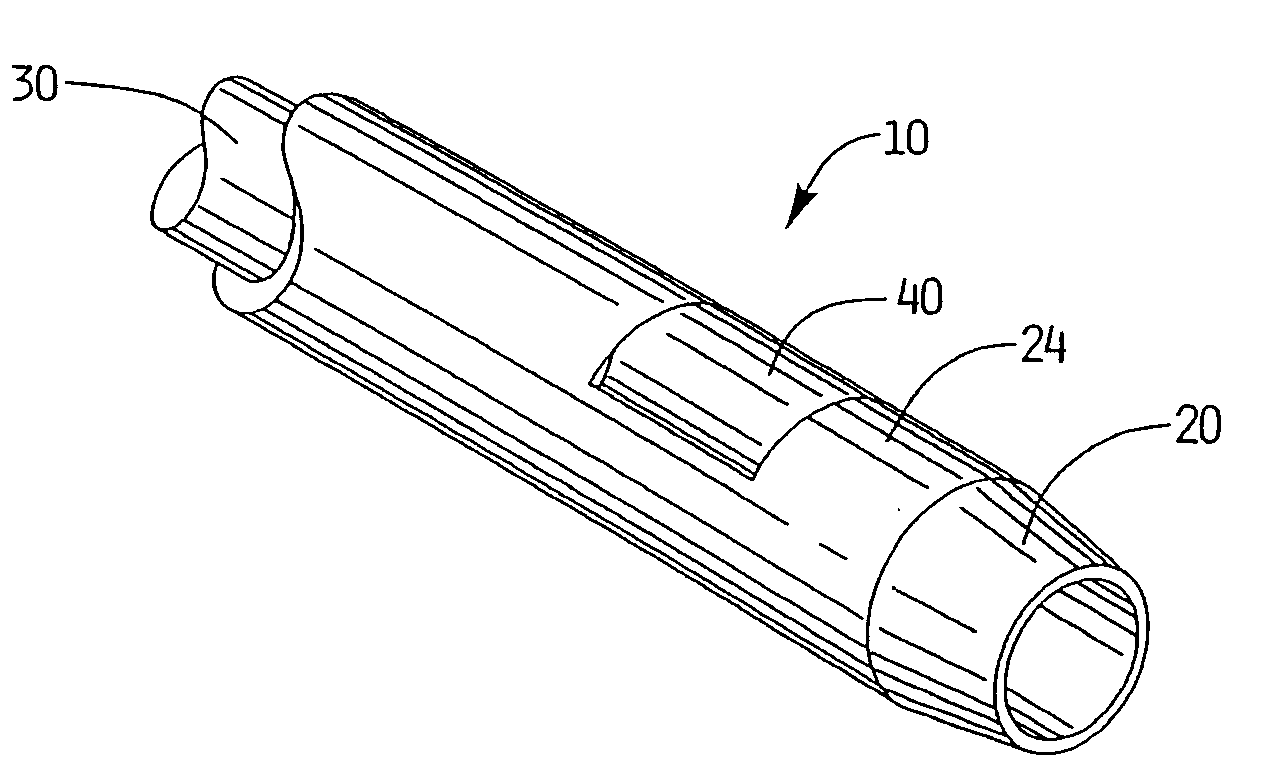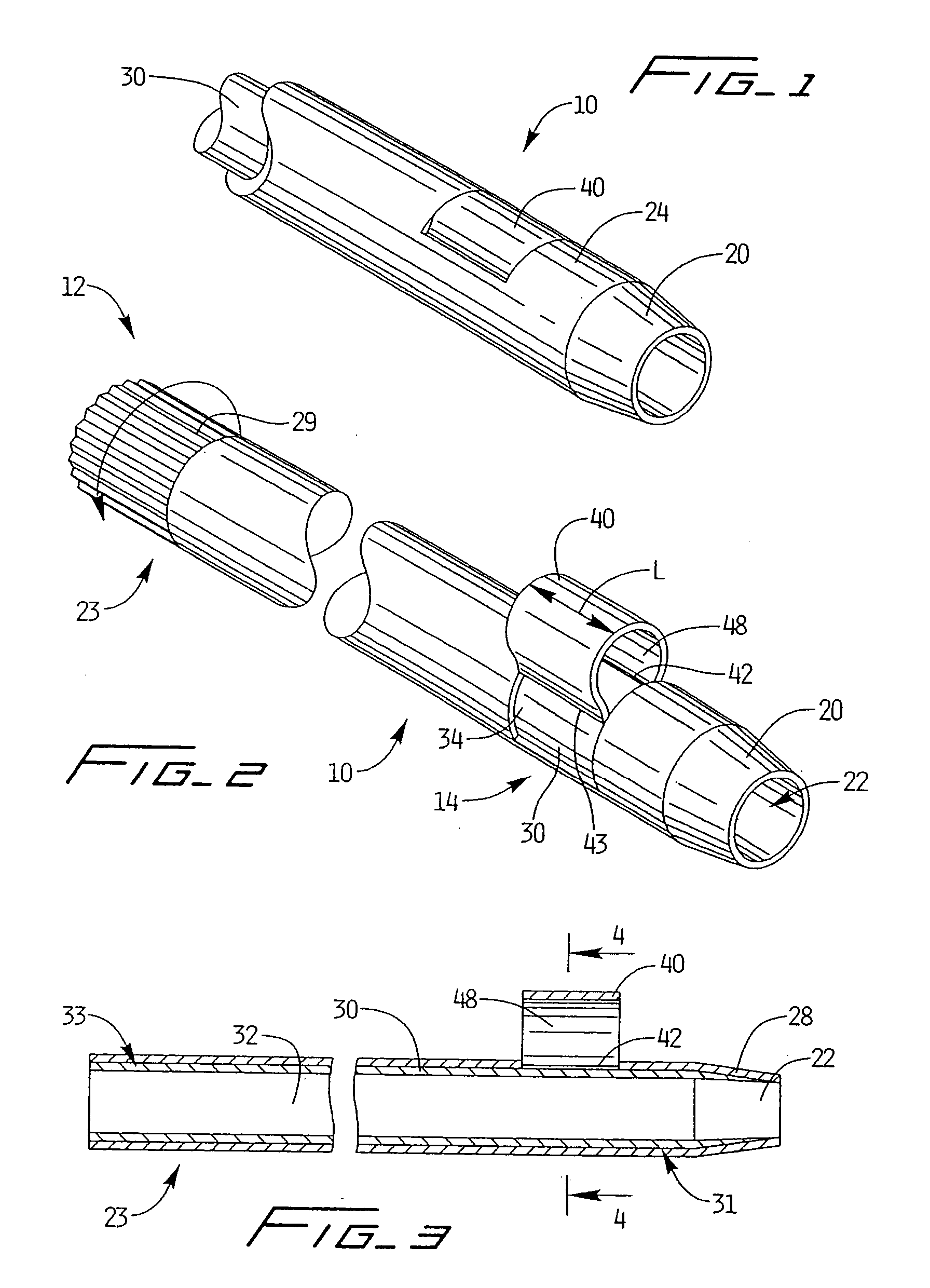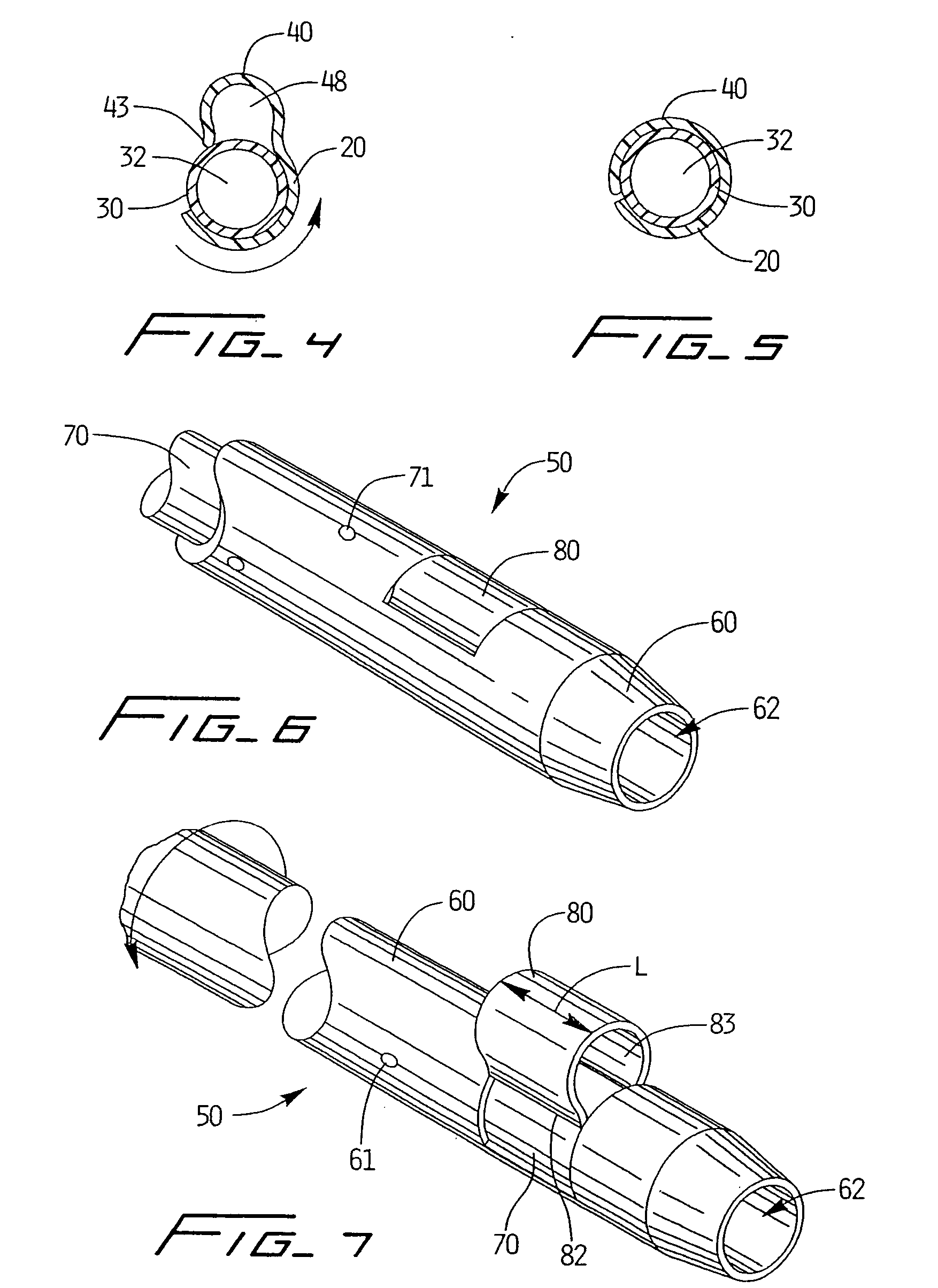Introducer sheath with retainer
a technology of introducer sheath and retainer, which is applied in the field of introducer sheaths with retainers, can solve the problems of greater frictional contact with the inside wall greater likelihood of dislocation, and dislocation of the sheath, so as to overcome the disadvantages and deficiencies, and restrict the sliding movement of the introducer sheath
- Summary
- Abstract
- Description
- Claims
- Application Information
AI Technical Summary
Benefits of technology
Problems solved by technology
Method used
Image
Examples
first embodiment
[0058] Referring now in detail to the drawings where like reference numerals identify similar or like components throughout the several views, FIGS. 1-5 illustrate the introducer sheath of the present invention, designated generally by reference numeral 10.
[0059] The introducer sheath 10 has a proximal portion 12, a distal portion 14, an outer tubular member 20 and an inner tubular member 30 disposed concentrically within the outer tubular member 20. A retainer 40, in the form of a curved or U-shaped flap, extends from outer tube 20 and is positioned proximally of the distalmost tip. Retainer 40 is movable from a retracted position where it is substantially flush with the outer surface 24 of outer tube 20 as shown in FIG. 1, to an extended (blocking) position where it extends radially outwardly from the outer tube 20 as shown in FIG. 2. This radial movement increases the overall circumference or diameter of the outer tube 20, thereby causing the sheath 10 to engage the vessel wall o...
third embodiment
[0074]FIGS. 16-19 illustrate the locking sheath of the present invention, designated generally by reference numeral 150. Locking sheath 150 is similar to the foregoing locking sheaths in that it has a retainer 160 in the form of a U-shaped flap that is movable between a retracted substantially flush position to a radially extended position with respect to the outer tube 162. Locking sheath 150 differs in the locking structure for the retainer 160 and some of the assembly components.
[0075] More specifically, and with reference to FIG. 17, inner tube 170 extends integrally from housing 172. Side port 179 for mounting conventional tubing as described above (not shown) is shown angled at about 45-degrees to reduce mechanical hemolysis. Inner tube 170 is preferably composed of a dark material, achieved for example by adding carbon black or other particles or by inks or pigments, to absorb laser wavelengths to create heat to laser weld the retainer 160 to the inner tube 170 (see FIG. 18)....
PUM
 Login to View More
Login to View More Abstract
Description
Claims
Application Information
 Login to View More
Login to View More - R&D
- Intellectual Property
- Life Sciences
- Materials
- Tech Scout
- Unparalleled Data Quality
- Higher Quality Content
- 60% Fewer Hallucinations
Browse by: Latest US Patents, China's latest patents, Technical Efficacy Thesaurus, Application Domain, Technology Topic, Popular Technical Reports.
© 2025 PatSnap. All rights reserved.Legal|Privacy policy|Modern Slavery Act Transparency Statement|Sitemap|About US| Contact US: help@patsnap.com



